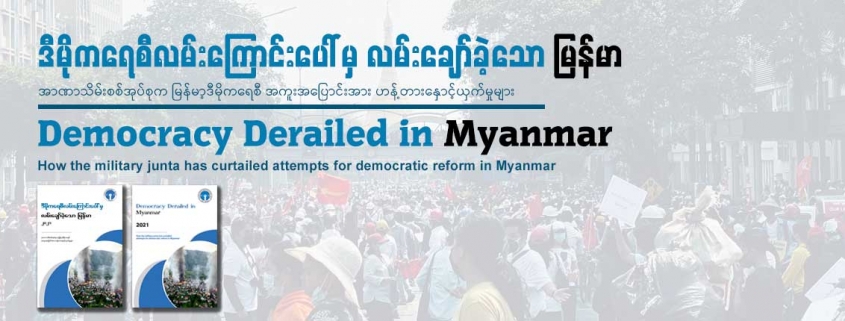Democracy Derailed in Myanmar
How the military junta has curtailed attempts for democratic reform in Myanmar
Myanmar has been embroiled in decades of internal warfare in which the military junta has adopted strategies in an attempt to harness control over the civilian population. The Myanmar Generals maintained power from 1962 until 2011 and frequently deployed violent actions meant to weaken local resistance movements and to assert their dominance over ethnic populations. Even when the National League for Democracy (NLD) was elected in 2015, the military struggled to share power with the civilian government, and regularly committed human rights violations. Despite moments of international condemnation, the Myanmar junta has largely evaded accountability for their crimes.
The military-drafted 2008 Constitution has contributed to their merciless authority which regularly provided amnesty to soldiers who committed endless crimes against civilians. Many of those in power today are longstanding Commanders in the Myanmar military. Their reign, which has spanned seven decades, has prevented any meaningful pathways for transitional justice for the thousands who have been killed and injured in the Tatmadaw’s pursuit for power.
Following years of authoritarian rule under the Myanmar junta, in 2015 the NLD won in a resounding landslide against the military-backed Union Solidarity and Development Party (USDP). NLD leader Daw Aung San Suu Kyi, was victorious after years of house arrest and unyielding attacks on her party’s members. The transition to democracy under a quasi-civilian government was slow but steady. It was challenging to advance and reform meaningful legislation due to the junta’s effective veto power, with 25 percent of Myanmar’s parliament seats reserved for unelected military Members of Parliament.



